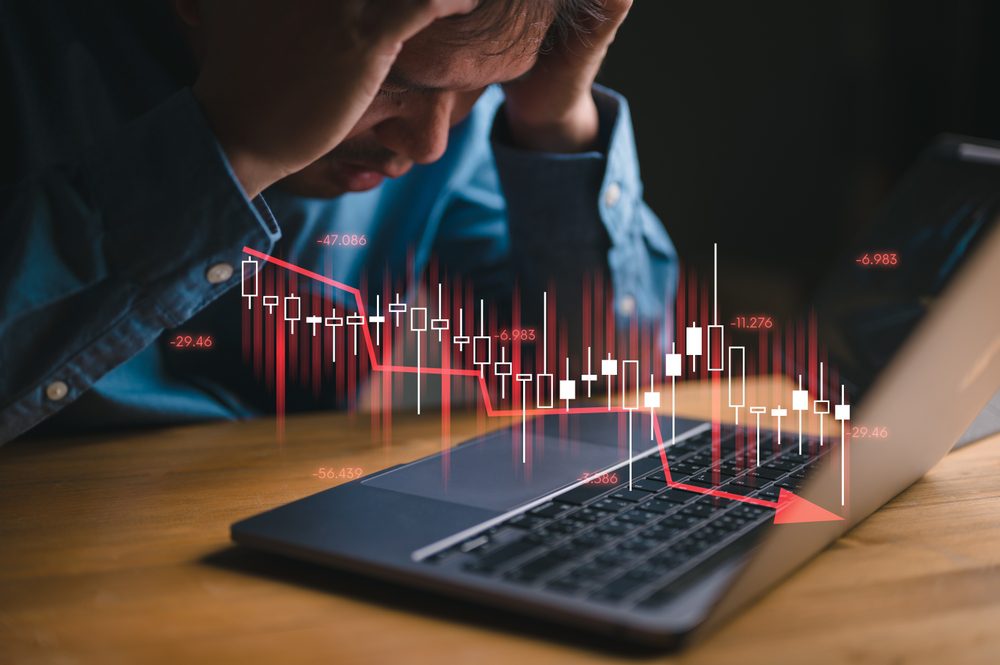The Looming Banking Crisis: How the $1.7 Trillion Time Bomb is Already Impacting Your Finances
The banking system is an essential component of the economy. It provides credit, finances investments, and facilitates transactions. A healthy banking system is crucial for economic growth and stability. However, when the banking system is…
When it comes to choosing car insurance, the number of options available can be overwhelming. Among the various providers, Clearcover Car Insurance stands out with its promise of offering next-generation insurance solutions that are fast,…
Here are some of the best movies about female con artists Maybe it is their ability to manipulate people or the fact that they seem to always be one step ahead. Whatever it is, Hollywood…
Look no further than this list of 8 corrupt billionaires who have served jail time When we think of corrupt billionaires, most of us probably imagine shady politicians and businessmen who have managed to avoid…
Overview As one of the largest car insurance companies in America, Allstate is a household name, yet recent controversies surrounding the auto insurance industry raise some questions about its credibility and service quality. With consumer…
Overview Jumping right into the heart of the matter, we find ourselves at the doorstep of American Family Insurance, a household name in the car insurance industry. But is it as trustworthy as it appears?…
Progressive, one of America’s leading insurance companies, is a household name synonymous with reliability in the ever-evolving insurance market. The company’s strong reputation for consistency and quality service is a refreshing antidote to the skepticism…
State Farm Auto Insurance, a renowned player in the auto insurance industry, is a familiar name to many. However, just like any other insurance company, it’s not without its controversies. This review aims to dissect…
Overview 21st Century Insurance, a member of the Farmers Insurance Group, is no stranger to the auto insurance world, and like a classic car, it comes with its own set of perks and quirks. Founded…
In the ever-competitive and stormy car insurance sector, Amica Car Insurance has, over the years, projected itself as a steadfast and reliable insurer. But with the industry itself shrouded in controversy, skepticism towards Amica is…
In the world of digital insurance, Esurance Car Insurance stands as a notable contender. Born from the tech boom, the company promotes itself as a pioneer in online auto insurance services. They boast about making…
In the increasingly murky waters of the vehicle insurance industry, Country Financial Car Insurance emerges as a familiar name. However, under the guise of comforting familiarity and a seemingly solid reputation, there is an undercurrent…
In today’s society, managing debt has become increasingly important. With the rising cost of living…
The Best Financial Advice for Moms This Mother’s Day: Secure Your Family’s Financial Future!
As Mother’s Day approaches, it’s the perfect time to offer the moms in your life…
Farm Bureau Auto Insurance, a name that resonates with car owners seeking a comprehensive insurance…
Costco, a name often associated with wholesale retail, has branched out to offer its members…
In a world where car insurance plays a fundamental role in our daily lives, one…
When it comes to auto insurance, consumers often find themselves caught between a rock and…
The car insurance industry, despite its essential function in safeguarding our vehicles, often finds itself…
The auto insurance industry has often been viewed with a degree of skepticism and controversy.…
The General Car Insurance, a company often recognized by its animated mascot and catchy slogans,…
In the car insurance industry, the customer’s trust is paramount. A company that fails to…
The automobile insurance industry is saturated with players seeking to provide protection for consumers on…
AARP Insurance – it’s a name that is normally met with a measure of doubt.…
In an industry that often seems as murky and convoluted as a film noir plotline,…
In the labyrinthine world of car insurance, few companies have sparked as much debate as…
In today’s bustling insurance market, Geico stands out as a stalwart beacon of reliability and…
In the constantly evolving world of car insurance, Adriana’s Insurance has managed to carve a…
In the tax relief industry, where businesses must foster trust, Tax Network USA’s reputation seems…
Navigating the complex world of taxes can be a daunting task. In a landscape where…
Brought to the forefront of discussion is Optima Tax Relief, a company whose reputation is…
In the labyrinthine, often intimidating world of tax resolution, a company called The Tax Resolvers…
In the world of tax relief, Larson Tax Relief is consistently mentioned. This Denver-based firm…
Honest Tax Review: Unmasking the Realities
While the tax season brings a wave of dread for many owing to the complex…



































